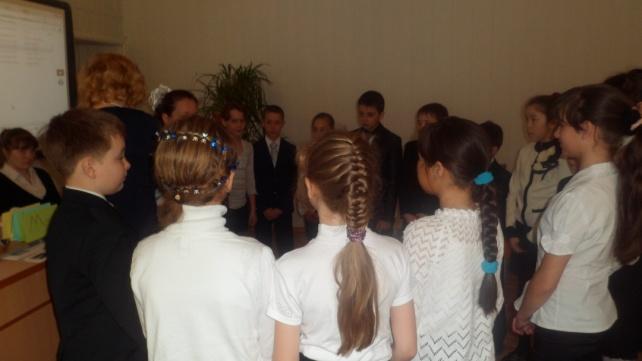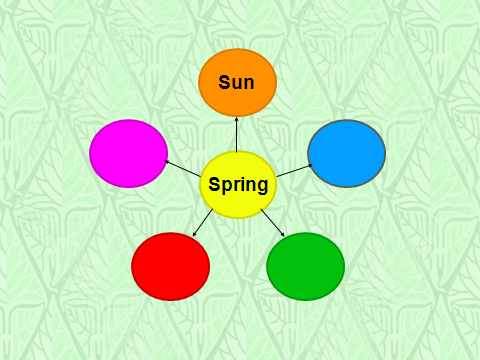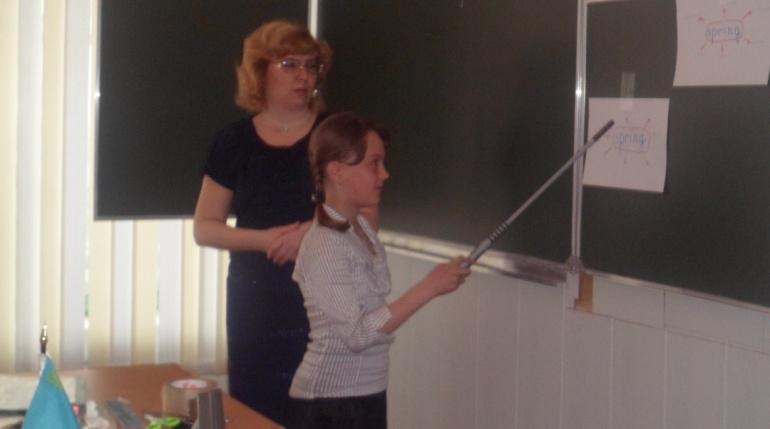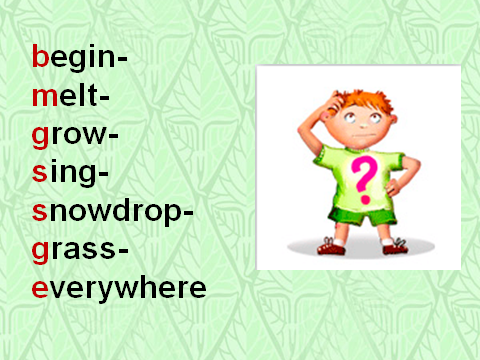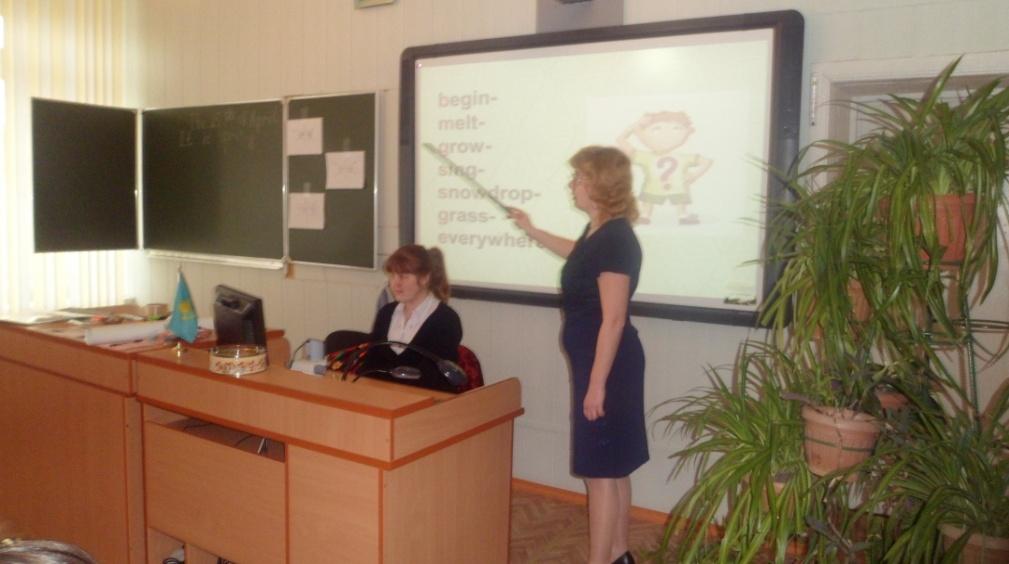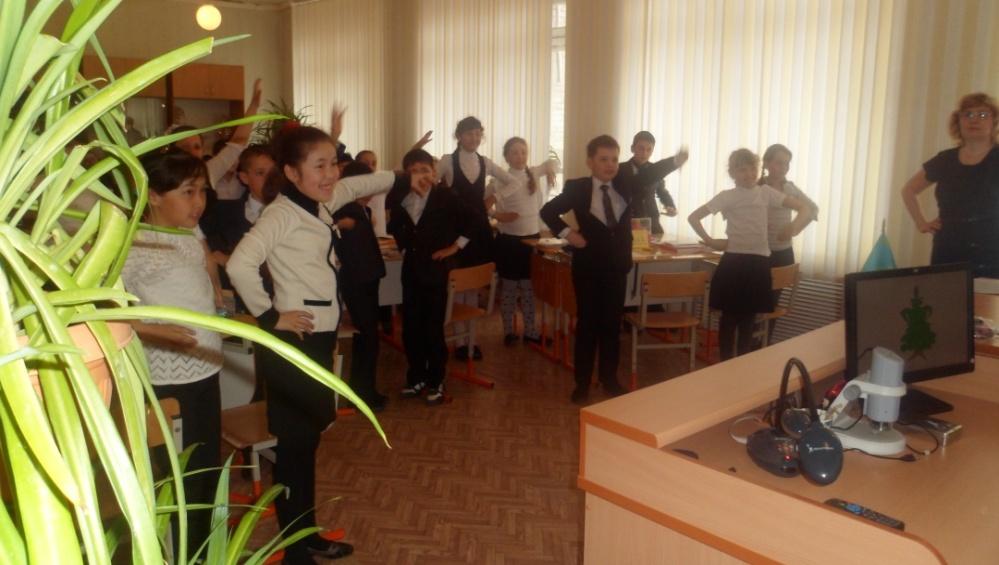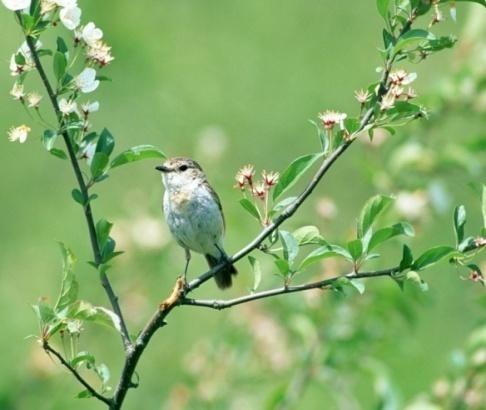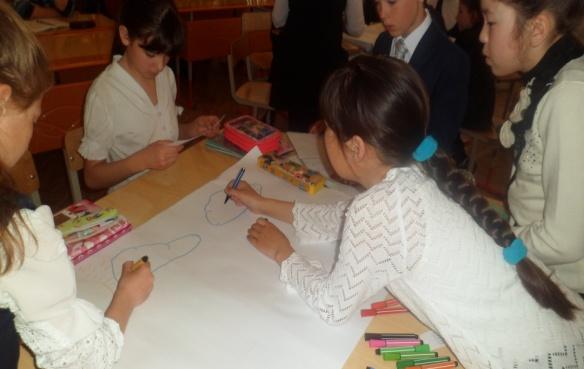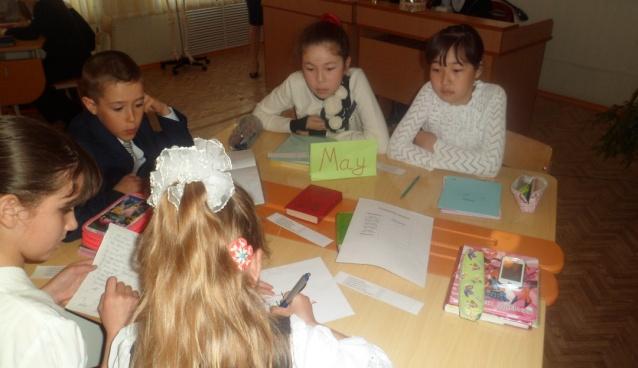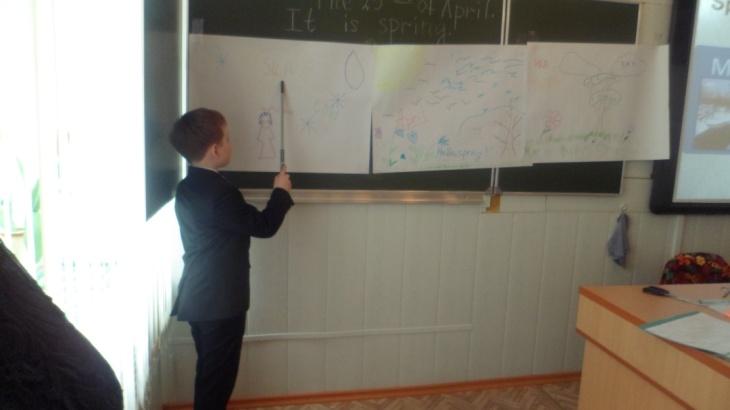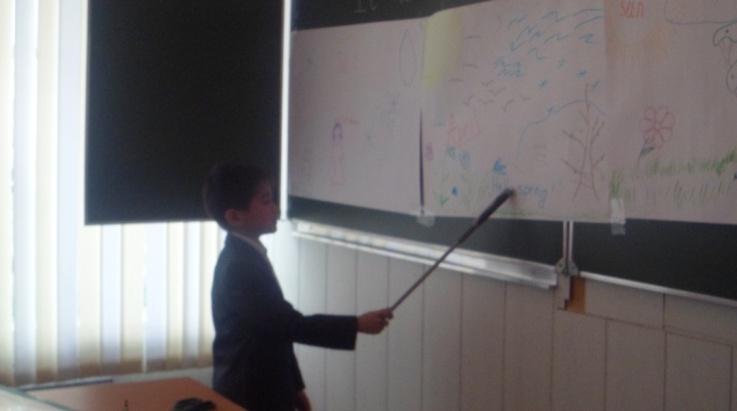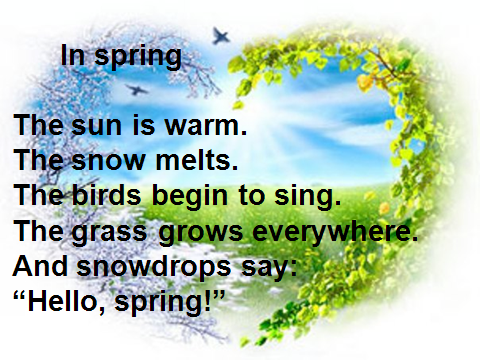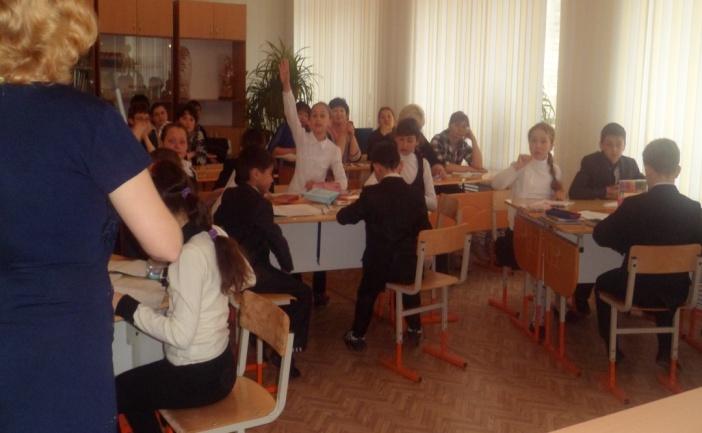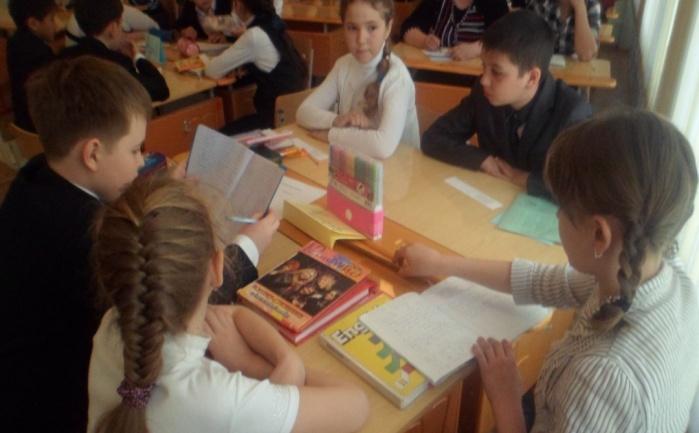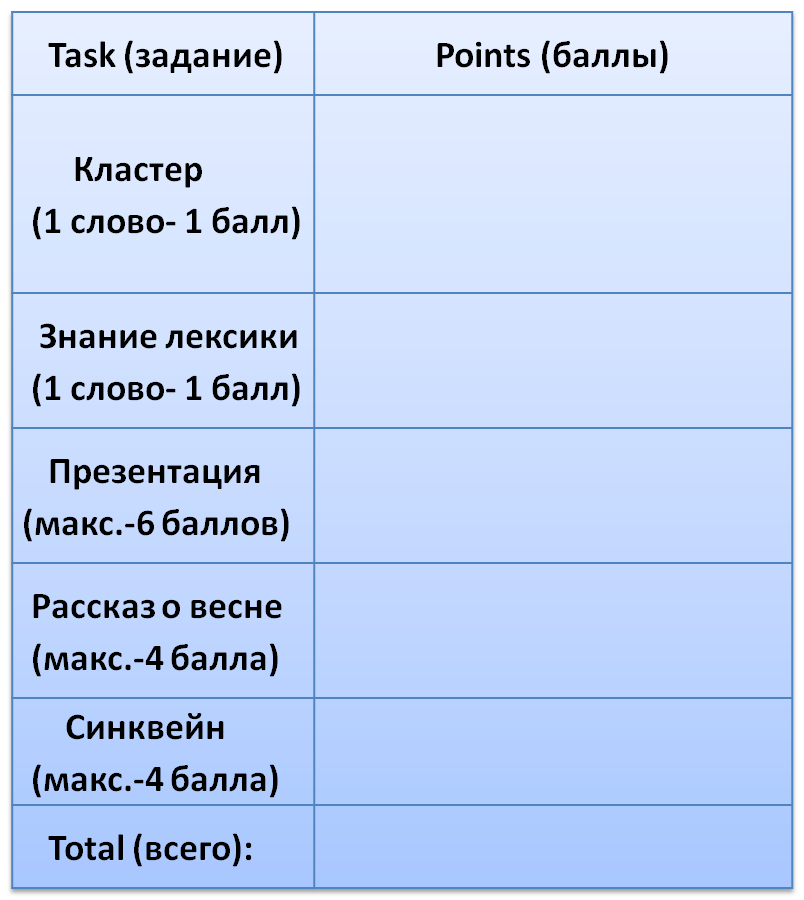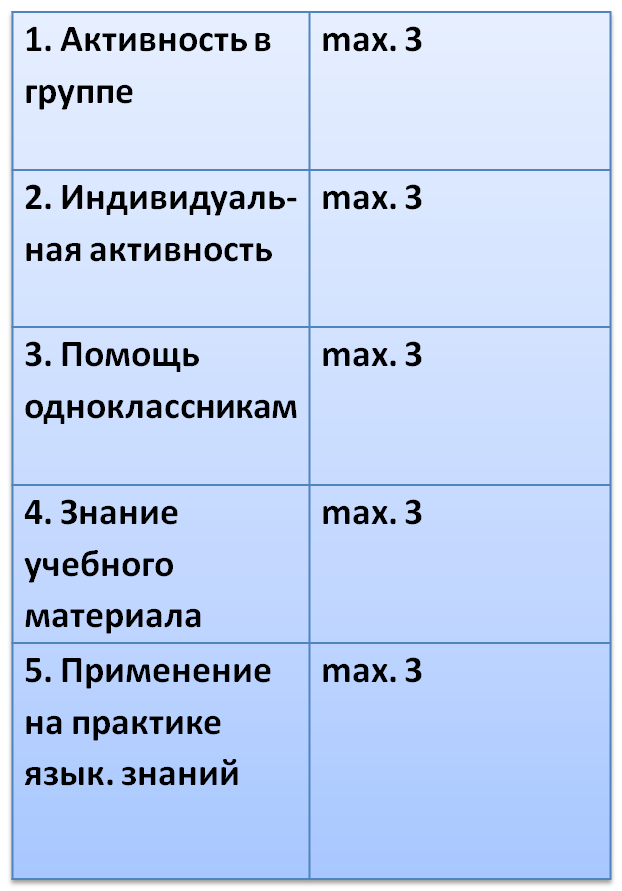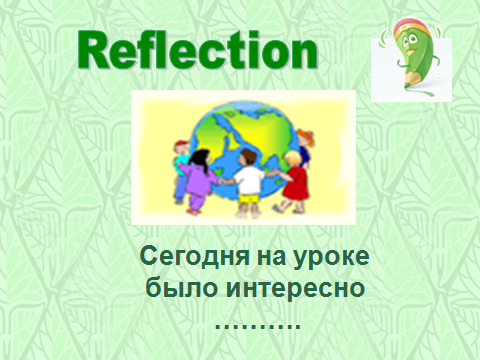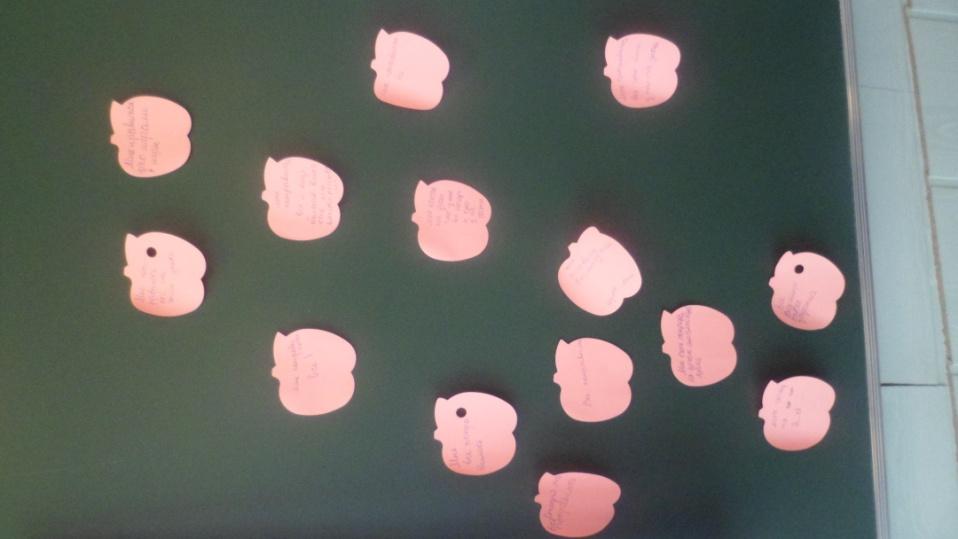Урок английского языка с применением новых технологий. Он был разработан и проведен мной после прохождения трехмесячных курсов повышения квалификации совместно с университетом Кембридж. На уроке использовались групповая работа, технологии критического мышления, яркие презентации, ИКТ.
Создайте Ваш сайт учителя Видеоуроки Олимпиады Вебинары для учителей
Урок по английскому языку "It is spring now"
Вы уже знаете о суперспособностях современного учителя?
Тратить минимум сил на подготовку и проведение уроков.
Быстро и объективно проверять знания учащихся.
Сделать изучение нового материала максимально понятным.
Избавить себя от подбора заданий и их проверки после уроков.
Наладить дисциплину на своих уроках.
Получить возможность работать творчески.
Просмотр содержимого документа
«Урок по английскому языку "It is spring now" »
Похожие файлы
Полезное для учителя
Распродажа видеоуроков!
1860 руб.
2660 руб.
1940 руб.
2770 руб.
1970 руб.
2820 руб.
1760 руб.
2510 руб.
ПОЛУЧИТЕ СВИДЕТЕЛЬСТВО МГНОВЕННО
* Свидетельство о публикации выдается БЕСПЛАТНО, СРАЗУ же после добавления Вами Вашей работы на сайт
Удобный поиск материалов для учителей
Проверка свидетельства
